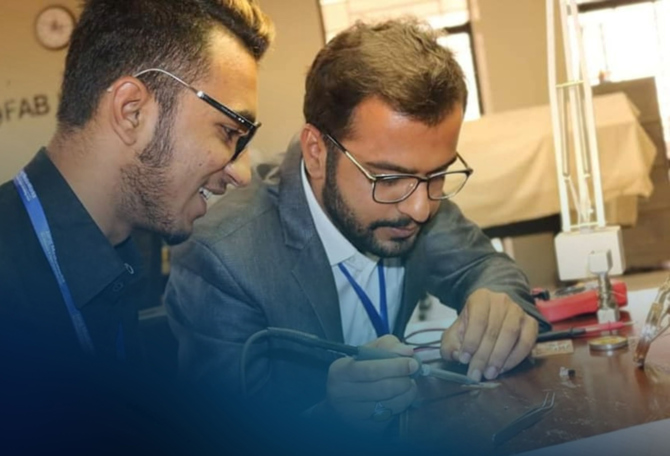
To be a globally recognized leader in producing highly skilled and innovative electronics engineering technologists, contributing to advancements in technology and addressing real-world challenges.
Our mission is to provide a comprehensive and advanced education in electronics engineering technology, emphasizing hands-on practical skills, critical thinking, and research-driven approaches. We aim to foster a collaborative learning environment that equips students with the knowledge and expertise needed to excel in various industries and make valuable contributions to the field.
The field of electronics engineering is rapidly evolving, with emerging technologies such as IoT, 5G, automation, and renewable energy requiring a new breed of professionals. This MS program addresses the growing demand for electronics engineering technologists who possess not only theoretical knowledge but also practical skills to design, implement, and maintain complex electronic systems.
The MS in Electronics Engineering Technology program is designed for individuals seeking to deepen their understanding of advanced electronics concepts and applications. Rooted in a strong theoretical foundation, the program emphasizes the integration of hands-on experience, research, and industry collaboration. Graduates will be prepared to take on leadership roles, driving innovation, and effectively solving real-world challenges in the electronics industry.
The program covers a wide range of topics within electronics engineering technology, including advanced circuit design, digital signal processing, embedded systems, communication systems, control systems, and sustainable electronics practices. Students will engage in practical lab work, research projects, and industry internships to gain practical experience and stay current with industry trends.
|
1st Semester – 2nd Year |
|||
|
S. No. |
Course Code |
Course Title |
Credit Hours |
|
01 |
EST- 611 |
Advanced Embedded System Design |
03+00 |
|
02 |
EST-612 |
Advance FPGA based system design |
03+00 |
|
03 |
EST-613 |
Communication System Technologies. |
02+00 |
|
Total |
08+00 |
||
|
2nd Semester – 2nd Year (Mandatory For MS by Coursework) |
|||
|
S. No. |
Course Code |
Course Title |
Credit Hours |
|
01 |
EST- 621 |
Power Electronic and Drives |
03+00 |
|
02 |
EST-622 |
Artificial Intelligence |
03+00 |
|
Total |
06+00 |
||
|
2nd Semester – 2nd Year (Mandatory For MS by Thesis / Dissertation) |
|||
|
S. No. |
Course Code |
Course Title |
Credit Hours |
|
01 |
EST- 623 |
Thesis / Dissertation |
00+06 |
|
Total |
00+06 |
||
Eligibility for Admissions in MS Electronics Engineering Technology Programs:
|
i. Electronics Engineering / Technology / Engineering Technology ii. Electrical Engineering / Technology / Engineering Technology iii. Computer System Engineering / Technology / Engineering Technology iv. Telecommunication Engineering / Technology / Engineering Technology v. Mechatronics Engineering / Technology / Engineering Technology vi. Biomedical Engineering / Technology / Engineering Technology vii. Any other field as per UNESCO’s subject classification. |
To be announced soon.